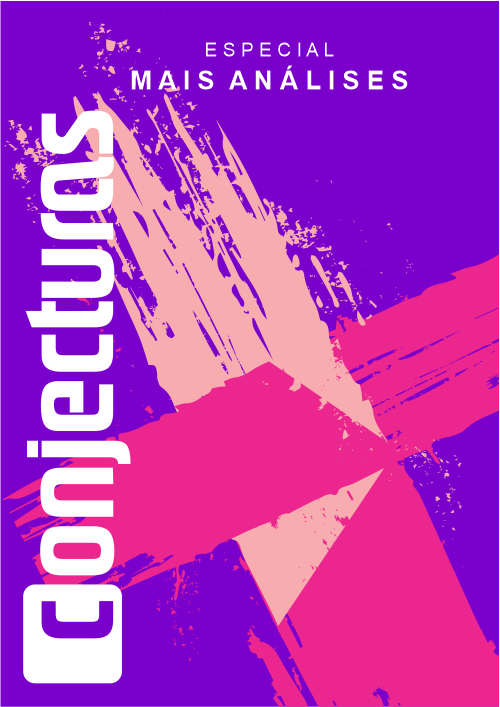Curriculum power and its policy framework at secondary level in Pakistan
DOI:
https://doi.org/10.53660/CONJ-2179-2Z69Palavras-chave:
Poder curricular, Estrutura curricular, Nível secundário no PaquistãoResumo
O objetivo do estudo foi revisar a estrutura curricular nacional das séries secundárias no Paquistão. O estudo empregou a pesquisa qualitativa a partir de uma revisão bibliográfica, adotando técnica de análise do discurso como paradigma para analisar o quadro de documento curricular. A análise do discurso ajuda a compreender a linguagem escrita, falada e gestual utilizada em qualquer análise documental. No nível secundário, o currículo é elaborado pelo conselho curricular nacional e pela estrutura curricular nacional. Eles preparam o currículo geral para o nível secundário nacionalmente. Após a 18ª emenda, o planejamento curricular e a formulação de políticas foram atribuídos a cada estado/província do país, agora cada estado está preparando seu próprio currículo de acordo com as necessidades da sociedade, apesar de adotarem a antiga estrutura curricular. Além disso, atualmente o governo está tentando preparar um currículo uniforme para toda a nação no nível secundário, mas não foi implementado adequadamente.
Downloads
Referências
ABOHO, D. A. Curriculum and the process of instruction. Curriculum and instruction, p. 1-6, 2010.
ACHOR, Emmanuel Edoja.; WILFRED-BONSE, Kate. The need to integrate entrepreneurship education into science education teachers’ curriculum in Nigeria. Journal of Science and Vocational Education (JSVE), v. 7, 2013.
AHMED, B. Will ‘single national curriculum’ be able to end systematic discrimination against religious minorities in Pakistan? (Unpublished graduate research project). Institute of Business Administration, Pakistan, (2020). Retrieved from https://ir.iba.edu.pk/research-projects-msj/16 on 30th October 2022.
AHMED, I. A study of problems and possibilities of using an investigative approach in science teaching. Unpublished Master‟s thesis of the Aga Khan University, Institute for educational Development. Karachi, Pakistan, 2000.
BARWELL, R. et al. Implementing curriculum change: Literature reviews—South Africa, Rwanda, and Pakistan. The Research Programme Consortium on Implementing Education Quality in Low Income Countries, EdQual Working Paper No, 6 (1), p. 32-40, 2007.
CAMPBELL-PHILLIPS, Sharon. Education and curriculum reform: The impact they have on learning. Budapest International Research and Critics in Linguistics and Education (BirLE) Journal, v. 3, n. 2, p. 1074-1082, 2020.
Dawn news reporter, (2022). The dawn news. Retrieved from https://www.dawn.com/news/1700899 acccess on 20 october, 2022
DEAN, Bernadette L. Citizenship education in Pakistani schools: Problems and possibilities. International Journal of citizenship and Teacher education, v. 1, n. 2, p. 35, 2005.
HALAI, Anjum. Gender and mathematics education in Pakistan: A situation analysis. The Mathematics Enthusiast, v. 7, n. 1, p. 47-62, 2010.
HALAI, Nelofer. Reviews: Science teacher education: A wonderful journey around the world. Canadian Journal of Math, Science & Technology Education, v. 2, n. 4, p. 571-574, 2002.
HAMEED-UR-REHMAN, M.; SEWANI, Salima Moosa Sadruddin. Critical Analysis of the Educational Policies of Pakistan. Dialogue (Pakistan), v. 8, n. 3, 2013.
IRFAN, Humaira. Insightful perspectives about effective implementation of ESL single national curriculum (SNC) in Pakistani schools. Pakistan Social Sciences Review, v. 5, p. 975-986, 2021.
ISMAIL, Zafar H. et al. Cost Effectiveness in Primary Education: A Study of Pakistan [with Comments]. The Pakistan Development Review, v. 33, n. 4, p. 1169-1180, 1994.
JAMIL, Baela Raza. Curriculum reforms in Pakistan–A glass half full or half empty. In: Seminar on School Curriculum Policies and Practices in South Asian Countries, NCERT Delhi, India. 2009. p. 10-12.
LALL, Marie. Educate to hate: The use of education in the creation of antagonistic national identities in India and Pakistan. Compare, v. 38, n. 1, p. 103-119, 2008.
MALIK, Muzaffar.; KHAN, Shafaat. Health informatics training at the postgraduate level: a curriculum development exercise in Pakistan. Journal of Health Informatics in Developing Countries, v. 1, n. 1, 2007.
MBAKWEM, J. N. Determining new social studies teacher effectiveness in curriculum delivery. Nigerian Journal of Curriculum Studies, v. 18, n. 1, p. 135-142, 2011.
MØLSTAD, Christina Elde.; HANSÉN, Sven-Erik. The curriculum as a governing instrument–a comparative study of Finland and Norway. Education Inquiry, v. 4, n. 4, p. 23219, 2013.
NATIONAL CURRICULUM FRAMEWORK-NCF. Ministry of Education, Islamabad. 2018. Retrieved from https://www.pc.gov.pk/uploads/report/NCF.pdf on 30th January, 2022
NATIONAL EDUCATION POLICY, (1979). Government of Pakistan, Ministry of Education-1979. Islamabad
NATIONAL EDUCATION POLICY, (2009). Government of Pakistan, Ministry of Education-2009. Islamabad
ROSSER, Yvette Claire. Curriculum as destiny: Forging national identity in India, Pakistan, and Bangladesh. The University of Texas at Austin, 2003. Available online at: http://repositories.lib.utexas.edu/bitstream/handle/2152/891/rosseryc036.pdf?sequence=2, accessed 5 September 2022
SECONDARY EDUCATION IN PAKISTAN (2020). Retrieved from; https://education.stateuniversity. com/pages/1145/Pakistan-SECONDARY-EDUCATION. on 20th January 2022
TAYLOR, Philip H.; RICHARDS, Colin M. An introduction to curriculum studies. Routledge, 2018.
Downloads
Publicado
Como Citar
Edição
Seção
Licença
Copyright (c) 2022 Conjecturas

Este trabalho está licenciado sob uma licença Creative Commons Attribution 4.0 International License.



